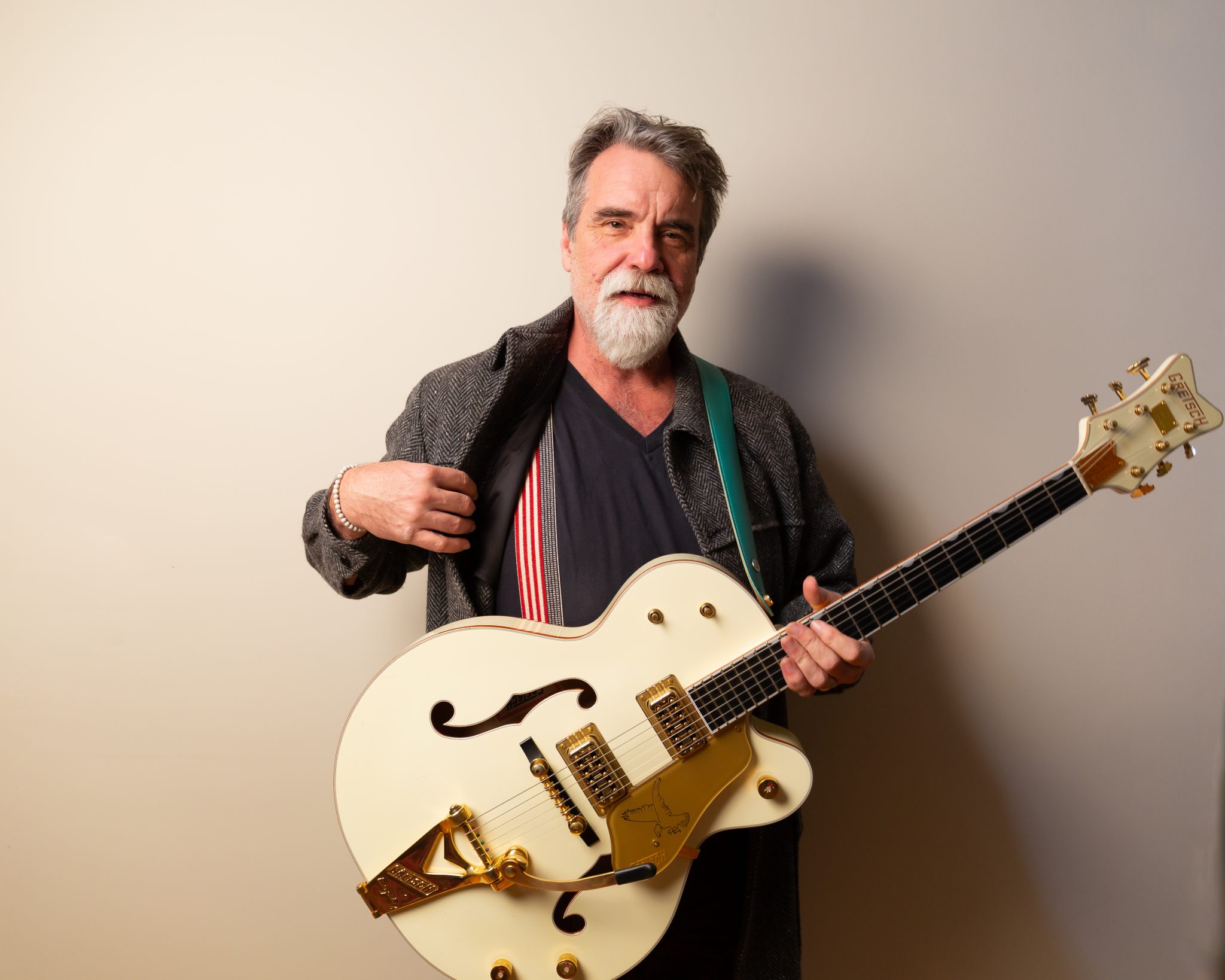Darrell Scott Celebrates the ‘Down-and-Out’ that Dwells in Hank Williams’ Songs

Photo by Gabriel Scott
Darrell Scott struggles to pick just one favorite song from Hank Williams, an artist who left an indelible mark on his childhood.
There’s “Alone and Forsaken.” Or maybe “I’m So Lonesome I Could Cry.”
Broadly, it’s “the sadder the better,” the veteran musician and singer-songwriter says in a recent interview by phone from his farm on Tennessee’s Cumberland Plateau.
“The sad stuff is the stuff that tore my dad up,” Scott says of his late father, Wayne Scott, a laborer and musician who loved Williams’ music. “I would see him physically cry. I would see him break down, you know, on his hero Hank.”

“It would be the equivalent of Christmas songs for kids who grew up in Christmas song homes,” Scott says. “That’s about how standard Hank Williams was to me.”
Wayne adored Hank and loved to play and sing in his style. He exceled at “Long Gone Lonesome Blues” due to the song’s yodeling. “That was almost the test of whether you could sing Hank or not, from my dad’s point of view,” Scott says.
This loving tribute to Hank Williams, out Friday, is not the first time Darrell Scott has paid musical homage to the famous performer and songwriter behind such country music staples as “Hey Good Lookin’” and “Kaw-Liga.” In 2007, he won the Americana Music Association’s Song of the Year award for “Hank Williams’ Ghost,” a rollicking number from his album The Invisible Man.
But for that composition, Scott said, he just happened to insert Hank Williams’ name into the song’s very last line: “We hurt the ones we love the most / And we blame it on Hank Williams’ ghost.”
By contrast, Darrell Scott Sings the Blues of Hank Williams was very much intentional. It began to come about when Scott booked some studio hours for the first time in years to play with various ideas. There, at Nashville’s Sound Emporium Studios, he recorded some new compositions and covered another artist, but he said it was the Williams songs he cut that really spoke to him.
While he wanted to honor those songs, he didn’t want to mimic them — he’s never been a fan of duplicative covers that he describes as coming from a “human jukebox.” Instead of Hank’s classic twang sound, Scott pursued a blues theme, leaning into electric guitar and focusing on an element of Williams’ music he said has long been apparent to him.
“Some of the most down-and-out type stuff possible comes from the pen of Hank Williams,” he says.
Scott enlisted several veteran musicians to form his “dream” outfit: Hammond B3 player Reese Wynans, drummer Marco Giovino, and bassist Danny Thompson. To select the songs they’d play, Scott says he focused on picking numbers that were not as well known. Aside from “Lost Highway,” he explored much deeper cuts. The intent was to probe deeper into the catalog while also seeking out new sonic directions.
“Hey, let’s listen to ‘Kaw-Liga’ for the next 100 years, no problem, but it’s already done,” Scott says. “Charley Pride did a great version of ‘Kaw-Liga,’ but there’s kind of no reason to go there for me.”
Of the album’s nine tracks, “Blues Come Around” and “Low Down Blues” most closely align with Scott’s chosen theme. So does the storming lead song, “My Sweet Love Ain’t Around,” centered on Wynans’ swirling keys and Scott’s world-worn yet defiant vocals. It’s a long way from the original’s ambling country style. This time with sheer force, Scott and company deliver for the downtrodden.
Another highlight is Scott’s cover of “Men with Broken Hearts,” from the 1955 album Hank Williams as Luke the Drifter. The spoken-word delivery, true to Williams’ original recording, allows Scott to make a poignant change-up a third of the way through the record. Plus, it’s a way for him to honor an album that he says has not gotten nearly enough consideration by the listening public.
Scott also included an old recording of “When God Comes and Gathers His Jewels,” cut in his dad’s Kentucky kitchen. Wayne took the lead on the heartfelt song about mortality and missing loved ones, including the song’s brief spoken-word section. It was a natural fit for the album.
“He’s where I got my Hank from,” Scott says. “So then I knew I had basically the record.”
Changed Plans
Scott originally timed the album release around MerleFest, which he was scheduled to play this week. The storied roots music festival, held each spring in Wilkesboro, North Carolina, was canceled due to COVID-19 precautions, like virtually every other gathering of its size for the time being.
Instead, Scott, like other artists, has pivoted to promoting his music online. He is offering livestreamed shows and archival content through a Patreon page. He sees hope and possibility in these new revenue streams and creative platforms.
“Part of it is because we’re not out on the road,” he says. “And part of it is we want to step up and try to bring some comfort and some music and some soul and some emotion and some connection during this time.”
While hunkered down at his farm, Scott is making the most of his newfound free time. He’s enjoying daily online videos breaking down the significance of art pieces from The Barnes Foundation in Philadelphia. He’s exploring Indian cooking. And he’s digging into new-to-him 78 rpm records from artists like The Carter Family, Django Reinhardt, Howlin’ Wolf, and Bob Wills.
Right now, Scott rejoices in the time and space to slow down.
“There’s a silver lining to this otherwise horrendous and hideous time we find ourselves in,” he says.




